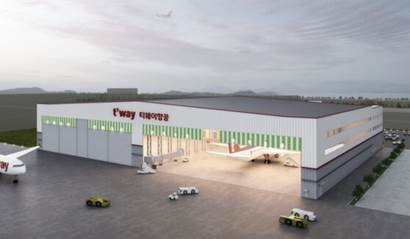엑스트란스 - 항공 물류 업데이트 - 02주차 블로그
항공화물 General
1) 에어프레미아, 알래스카항공 미주 연계운항 잠정 중단

- 에어프레미아가 미국 5위 규모 항공사인 알래스카항공과의 인터라인(노선 연계운항)을 잠정 중단..즉, 지난 1일부터 알래스카항공과의 인터라인 연결 항공편의 판매를 중지..
- 인터라인은 여러 항공사가 제휴를 맺어 각각 운항하는 노선을 연계해 티켓을 한데 묶어 판매하는 협력 형태를 말함, 승객은 여러 항공편을 티켓 한 장으로 편리하게 이용할 수 있고 항공사는 노선 확대 및 환승객 유치 효과를 가짐. .
- 에어프레미아는 지난해 7월 알래스카항공과 인터라인 협약을 맺고 알래스카항공이 운항하는 미국 국내선 110여개와 캐나다, 중남미 5개국 노선을 연계 운항해왔음.
- 알래스카항공이 지난해 말 미국 하와이안항공 인수를 마치고 중복 노선 감축 등 새 노선 전략 수립에 나서면서 인터라인 중단이 불가피해진 것으로 전해짐.
- 에어프레미아 관계자는 "알래스카항공과 하와이안항공이 합병되면서 내부적으로 노선 및 파트너십 전략을 다시 수립하는 중이라 잠정적으로 중단된 상황 " 전언
- 한편 에어프레미아가 지난해 5월부터 대한항공과 미주 노선에서 진행하는 인터라인은 총 25개 노선에서 운영 중 .
2) 통합 앞둔 에어부산 - 부산 거점 항공사를 존치하기 위한 할 수 있을까

- 아시아나항공과 기업결합을 마무리한 대한항공이 에어부산을 비롯해 저비용항공사(LCC) 3사 통합을 본격적으로 추진할 것으로 보여 부산에서 지역 거점 항공사를 존치 방안에 관심이 쏠리고 있음.
- 8일 부산시와 에어부산 등에 따르면 에어부산은 오는 16일 임시 주주총회를 열고 새로운 경영진을 선임.
- 정병섭 대한항공 여객 영업부 담당(상무)과 송명익 대한항공 기업결합TF 총괄팀장(상무), 서상훈 대한항공 재무 담당(상무) 등 대한항공 출신
- 임원들이 에어부산 경영진을 맡게될 예정
- 대한항공과 아시아나 자회사인 진에어, 에어서울, 에어부산 통합 움직임이 본격화되고 있지만 부산에서 요구하는 거점 항공사 존치는 아직 불투명.
- 부산 거점 항공사 존치 방안으로는 통합 LCC 본사 유치, 에어부산 분리매각, 독자적인 부산 항공사 설립 등이 거론 중 .
- 부산시는 대한항공이 LCC 3사 통합을 한다면 통합 LCC 본사 유치가 가장 현실적인 대안으로 보고 있음.
- 미래사회를 준비하는 시민공감, 가덕도허브공항시민추진단 등은 "대한항공과 아시아나항공의 기업결합에 따라 통합 LCC 본사는 인천으로 갈 확률이 높아졌다"며 "지금이라도 부산시와 지역 상공계가 나서 에어부산 분리매각에 나서야 한다"고 촉구.
- 이들은 "부산은 에어부산을 설립하고 키워왔던 경험이 있고 가덕도신공항 개항을 앞둔 장점을 갖고 있다"며 "부산 시민이 원하는 에어부산 분리매각이 안되면 지역이 주체가 되는 신생 항공사 '부산에어' 설립해야 한다"고 주장.
3) 아시아나 빈자리 누가 ? - FSC 준비하는 LCC

- 국내 양대 대형항공사(FSC) 대한항공과 아시아나항공이 합병함에 따라 공석이 될 항공업계 2인자 자리에 관심이 쏠리고 있음. 저비용항공사(LCC) 1위를 수성하던 제주항공이 무안 여객기 참사로 몸을 웅크리자 경쟁사들은 치고 나갈 준비에 박차를 가하고 있음.
- 최근 티웨이항공은 전통적인 FSC가 갖춰야 할 요건들을 하나씩 확보해나가며 대형화 채비에 나섬.
- 티웨이항공은 대한항공과 아시아나항공의 기업 결합 승인 요건으로 유럽 노선 4개를 이관받으며 작년부터 FSC의 전유물이던 유럽 하늘을 오가기 시작. 2028년부터는 LCC 최초로 인천국제공항 내 첨단복합항공단지에 정비 시설인 격납고를 운영할 계획.
- LCC 사업모델이 비용 절감에 초점을 맞추고 있는 까닭에 LCC들은 자체적인 정비 시설을 꾸리기보다 항공정비(MRO)를 외주에 맡겨옴. 그런데 티웨이항공은 장기적인 상황을 고려해 1500억원 규모의 격납고를 짓기로 하고, 최초 3년간은 티웨이항공의 보유 항공기 위주로 정비를 수행하고 4년 차부터는 국내 향공사 우선으로 외주정비를 시행할 방침. 본격적인 중장거리 항공사로의 도약 준비를 하는 것.
- 장거리 노선 고객을 위해 멤버십 제도도 확대 재편. 티웨이항공은 6월 구독형 멤버십 '티웨이플러스'에 장거리 노선에 특화된 '프라임'과 ' 플래티넘' 멤버십을 추가. 이는 장거리 노선을 운영하는 대부분의 FSC들이 마일리지 위주의 로열티 전략을 취하고 있는 만큼, 그에 상응하는 서비스를 내놓은 것으로 풀이.
- 세계 FSC들의 동맹체인 '스타 얼라이언스'에 가입할 가능성- 스타얼라이언스는 1997년 결성된 세계 최대 항공동맹으로 한국에서는 아시아나항공만이 가입. 가입한 항공사들의 마일리지를 서로 교차 사용할 수 있다는 장점이 큰데, 가입 조건이 까다롭고 연회비가 막대해 실질적으로 FSC 외에는 가입 난망. 최근 스타얼라이언스는 소규모 항공사들이 스타얼라이언스와 제휴할 수 있게하는 '커넥팅 파트너' 제도를 도입. 티웨이항공이 스타얼라이언스 가입에 성공한다면 대외적인 LCC 지위는 탈피하기 쉬워지게됨
- 장거리 노선을 운용하는 LCC는 티웨이항공 뿐만은 아니다. 티웨이항공이 유럽과 미주 등 장거리 노선 중심으로 정체성을 바꾸고 있다면, 에어프레미아는 애초 장거리 노선 위주로 출발.
- 중견항공사로 도약하기 위한 채비도 한창. 에어프레미아는 2030년까지 중장거리용 항공기를 20대로 늘린다는 목표 세움.
4) 멕시코, 중국발이커머스기업대상 '핀셋관세' 도입 – 글로벌 관세전쟁 재 점화

- 멕시코가 테무 ·쉬인으로 대표되는 중국발 소액 수입품에 강력한 관세정책을 도입함. 이달 도널드 트럼프 미국대통령 당선인의 취임을 앞두고 대미관계 개선을 위한 포석으로 분석됨.
- 멕시코 국세청은 1일부터 택배를 통한 소액화물 수입품에 대해 17~19%의 관세를 새로 부과함. 특히, 멕시코와 국제조약을 맺지않은 중국발 제품에는 일률적으로 19%의 관세가 부과됨.
- 미국, 캐나다 등 USMCA (미국·멕시코·캐나다협정) 회원국으로부터의 수입품은 50 ~ 117달러 구간에서 17%의 관세가 적용됨. 이전까지는 이러한 소액화물이 관세 면제대상 이었음. 이ㅁ번조치는 중국계 전자상거래업체들이 각국 소액화물 면세제도를 활용해 저가제품을 대량으로 유통하는 것을 견제하기 위한 것임.
- 그동안 중국 이커머스 플랫폼 기업과 미국 전자상거래 수입업체들은 중국에서 멕시코로 상품을 수입한 후 이를 미국으로 한번에 한 건씩 발송해 관세를 회피할 수 있었음. 이는 ' 섹션 321 (Section 321) ' 조항을 활용한 방식으로, $800 이하의 상품은 관세없이 미국으로 들어올 수 있는 제도를 이용함.
- 특히, 미국 전자상거래 기업들은 멕시코의 낮은 인건비와 유리한 물류 환경을 활용해 이 전략을 대규모로 채택해 왔음.
- 이번조치는 중국 온라인업체들의 가격 경쟁력을 직접적으로 약화 시킬 전망임. 그동안 이들은 배송·취급 비용절감을 통해 저가제품을 앞세워 멕시코시장을 공략해왔음. 다만, 갑작스러운 관세부과가 오히려 멕시코 경제에 부메랑이 될 수 있다는 우려도 제기됨.
5) GSA 및 항공사 동향
- 아시아나항공, 인천-프라하 노선 신규 취항. 4월 1일부터 주 3회 화목일 기종 A350

top



